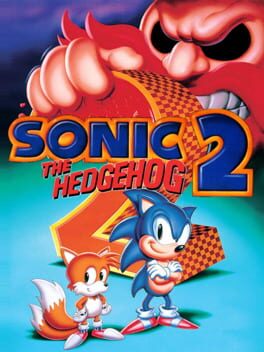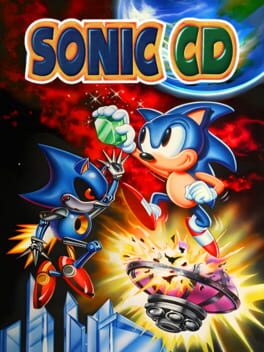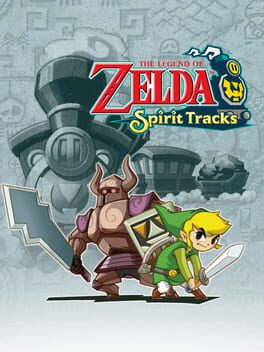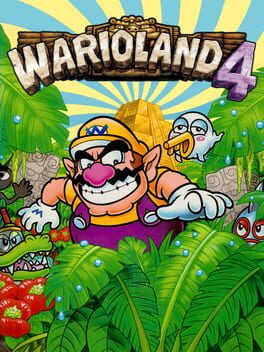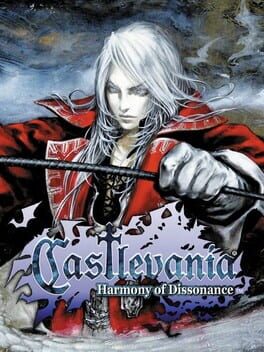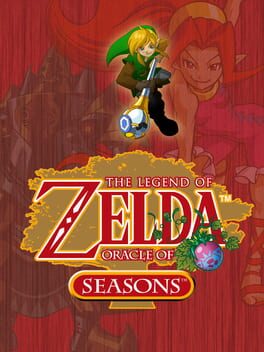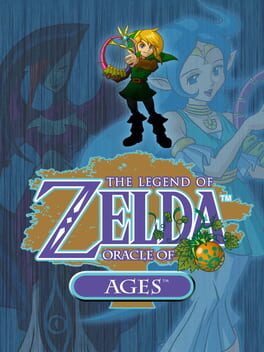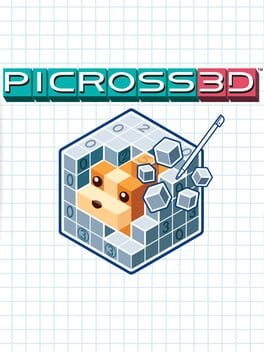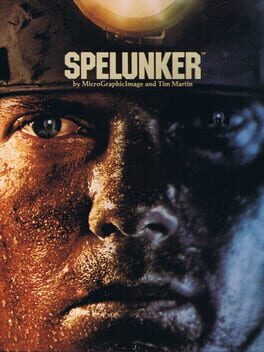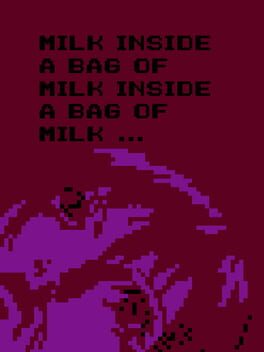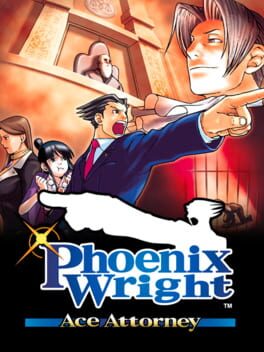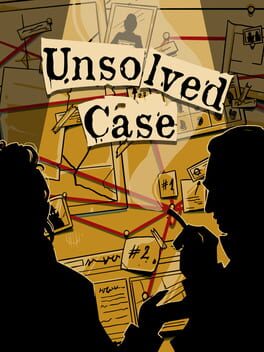Xicrinho
1992
1993
I can't make my mind on this game. I love the highs but also hate very much the lows. It improves (a lot) Phantom Hourglass. Everything good from that game is here: charismatic characters, new amazing and creative gimmicks, soundtrack, cute story. It also follows the same structure meaning you go back to one dungeon multiple times. But the one temple you go back to is way more fleshed out and not annoying to go back to anymore.
Sadly the one big problem is traveling in the overworld. In my opinion it works just fine in Phantom Hourglass but here it's way worse. I don't know if it's just me but I really dislike it. It's slow and they shove a bunch of pointless enemies making it really easy to die. Instead of expanding my interest in Hyrule and giving me any feeling of exploration it becomes a boring chore that just slows the pace of the game for no reason.
Aside from that, I like how instead of making a pseudo open world game like Phantom Hourglass (where you get to choose the order you do the last three dungeons) they went full linear, which is perfect for these smaller games. The final boss is also one of the highlights. The developers, like in the last game, weren't afraid of experimenting and I'm all for that. I finished Spirit Tracks wishing that it was a trilogy and we had one more game with the theme of these two.
PS:
I'm conflicted. I don't know if I give this game 4 stars for the great parts in it or if I give it 3½ because of the weak parts. I figured I'd give it the 3½ for the simple fact that I don't feel like replaying or even finishing the side quests.
Sadly the one big problem is traveling in the overworld. In my opinion it works just fine in Phantom Hourglass but here it's way worse. I don't know if it's just me but I really dislike it. It's slow and they shove a bunch of pointless enemies making it really easy to die. Instead of expanding my interest in Hyrule and giving me any feeling of exploration it becomes a boring chore that just slows the pace of the game for no reason.
Aside from that, I like how instead of making a pseudo open world game like Phantom Hourglass (where you get to choose the order you do the last three dungeons) they went full linear, which is perfect for these smaller games. The final boss is also one of the highlights. The developers, like in the last game, weren't afraid of experimenting and I'm all for that. I finished Spirit Tracks wishing that it was a trilogy and we had one more game with the theme of these two.
PS:
I'm conflicted. I don't know if I give this game 4 stars for the great parts in it or if I give it 3½ because of the weak parts. I figured I'd give it the 3½ for the simple fact that I don't feel like replaying or even finishing the side quests.
2001
Must play!
It takes Wario Land 3 (which is fantastic) and makes it shorter but definitely better!
Instead of having multiple ways to beat a level, the game divides the levels into two portions: the first where you explore the map and the second where you need to get back to the beginning before a timer runs out. At first I didn't liked it but it's a crucial piece of design for you play the first portion of the levels with the second in mind thinking about how you will return given the clues left throughout the levels.
You also start the game with all of Wario's powers and is free to do the route you want. So if you just played Wario Land 3 and thought that it was a slow game, I highly recommend playing 4 right after.
The CD's are a cool addition and give meaning to the exploration of the levels even though most people can't match the peculiar music style.
Incredible music, visuals and controls. Extremely fun and creative levels on top of all that. There's no way around it: it's a must play.
It takes Wario Land 3 (which is fantastic) and makes it shorter but definitely better!
Instead of having multiple ways to beat a level, the game divides the levels into two portions: the first where you explore the map and the second where you need to get back to the beginning before a timer runs out. At first I didn't liked it but it's a crucial piece of design for you play the first portion of the levels with the second in mind thinking about how you will return given the clues left throughout the levels.
You also start the game with all of Wario's powers and is free to do the route you want. So if you just played Wario Land 3 and thought that it was a slow game, I highly recommend playing 4 right after.
The CD's are a cool addition and give meaning to the exploration of the levels even though most people can't match the peculiar music style.
Incredible music, visuals and controls. Extremely fun and creative levels on top of all that. There's no way around it: it's a must play.
I never hated a game so much. I literally felt nauseated playing this. I get they were trying to sacrifice the sound to improve the graphics but holy shit the music and the sounds are the worst. Obnoxious all the time. And the worst part: when you think you're progressing, the game slams an obstacle and makes you run back and forth through two castles. Like if one wasn't enough. The boss battles are ridiculously easy. The only reason I finished this game is because of the dash. If they made the traversal like Circle of the Moon I would definitely dropped this game. A shame because, if the developers had a more robust system to work with, this could be at least playable.
I love the idea of games that complement each other. I'm looking forward to finish Oracle of Ages after this one. This is the second time I played Oracle of Seasons and it's a pretty good game. It takes the "skeleton" of Link's awakening and tries to expand on that game.
It doesn't succeed on that, though. The game is more of the same with few variations on subitems and overall level design. That doesn't mean it isn't enjoyable (I wouldn't suggest to play the GBC Zelda games back to back). The game has good pacing that combines well with the tame difficulty. There's a bunch of puzzles (I'd like to highlight level 8 that has an annoying but creative puzzle) and could use more enemy variety that starts to get weary by the 7th dungeon. There's also one of the most cool features that are the "pets" that help Link progress in the overworld. It's a shame that they're only useful for brief amount of gameplay given the scope of the game. But even being a relatively small game, it still pushes its limits and has a second map, an underworld with peculiar creatures.
The game shines on the story it's telling. I read somewhere that usually they made the game first, meaning the devs worked on the map, enemies and dungeons first before the story. But Capcom wrote everything before that and it shows. Oracle of Seasons is packed with charming characters and funny dialogues. Also the drawings displayed on game start and on the credits sequence are gorgeous.
My main complaints are: the graphics that are the exact same as Link's Awakening and the bosses. The boss fights are either too easy or too cryptic. The worst part is the final boss that is underwhelming to say the least.
Aside from that, it's a fun game definitely worth the time. The seasons gimmick is great but it's arguably underused. The music for most dungeons is gloomy and I liked that. Overall a pleasing game that has its qualities and could use some improvement.
By now, before continuing the story on Oracle of Ages, I would still suggest playing Link's Awakening first because it is simpler.
Edit: here's my review of Oracle of Ages. I'm also updating my grade from 4 stars to 3 and a half.
It doesn't succeed on that, though. The game is more of the same with few variations on subitems and overall level design. That doesn't mean it isn't enjoyable (I wouldn't suggest to play the GBC Zelda games back to back). The game has good pacing that combines well with the tame difficulty. There's a bunch of puzzles (I'd like to highlight level 8 that has an annoying but creative puzzle) and could use more enemy variety that starts to get weary by the 7th dungeon. There's also one of the most cool features that are the "pets" that help Link progress in the overworld. It's a shame that they're only useful for brief amount of gameplay given the scope of the game. But even being a relatively small game, it still pushes its limits and has a second map, an underworld with peculiar creatures.
The game shines on the story it's telling. I read somewhere that usually they made the game first, meaning the devs worked on the map, enemies and dungeons first before the story. But Capcom wrote everything before that and it shows. Oracle of Seasons is packed with charming characters and funny dialogues. Also the drawings displayed on game start and on the credits sequence are gorgeous.
My main complaints are: the graphics that are the exact same as Link's Awakening and the bosses. The boss fights are either too easy or too cryptic. The worst part is the final boss that is underwhelming to say the least.
Aside from that, it's a fun game definitely worth the time. The seasons gimmick is great but it's arguably underused. The music for most dungeons is gloomy and I liked that. Overall a pleasing game that has its qualities and could use some improvement.
By now, before continuing the story on Oracle of Ages, I would still suggest playing Link's Awakening first because it is simpler.
Edit: here's my review of Oracle of Ages. I'm also updating my grade from 4 stars to 3 and a half.
My expectations when I started playing Oracle of Ages after playing Oracle of Seasons two times weren't low, but they also weren't high. As I said previously in my Oracle of Seasons review, these games use Link's Awakening as a base. This gave the developers the possibility to experiment and play with cool concepts. My main complaint of Seasons was that it could be called Link's Awakening 2, because that's what the game, on its own, feels. Hence my apprehension. But now, after playing it, I'm amazed.
Oracle of Ages doubles down on the story. Here we have, aside from Nayru the oracle, Ralph, a clumsy but determined hero, and Zelda. The game from the very start hits you with a long cutscene for Game Boy standards, so be prepared to read and watch cute animations. After that you're free to roam through Labrynna, and right away it is clear that the focus here are the puzzles, opposed to the focus on combat in Seasons. The general feeling I had is that Ages is more than its counterpart in everything that is proposed for these titles. I got this feeling from the very start with the variety of characters, scenarios and music. The time traveling mechanic that allows you to alternate from past to present is responsible to make two different maps and therefore different scenarios. It also gives us different soundtracks for the same locations either changing the instruments or tempo of the songs, a welcome improvement. Time traveling is essential throughout the whole game for crossing the map, for solving puzzles and for beating the dungeons. Also the developers were clever to change some subitems in each game to mix things up a little. Here we have the switch hook instead of the boomerang and the pea shooter instead of the slingshot (more puzzle oriented items).
Unfortunately both games suffer with the limitations of the hardware. If Seasons needed enemy variety, in Ages there's a lack of puzzle variety. In the first three dungeons I believe, all of the puzzles were already used. I didn't feel as much because I was invested in the narrative, but I can see someone getting tired of them. Also worth mentioning one of the sections where it's necessary to play a bunch of minigames to progress. The minigames weren't difficult but I felt a bit annoyed by that (I noticed I'm not a big fan of minigames in Zelda).
I forgot to mention that Oracle of Ages has a final boss. Unlike whatever that thing in Oracle of Seaons is, anything but a final boss.
I don't want to be repetitive so as far as the other elements of both games go (like the pets, graphics and difficulty) I think I covered them all on the Oracle of Seasons review because my criticism holds for Ages too on those matters. So to finish the Oracle of Ages review I'd would say that it's a fun game. The focus on the story hooked me and solving puzzles felt nicer than slaying mummies and bats. I don't know why but I like the atmosphere of this game. Zoras's domain, the library and symetry city are lovely. And Tingle is in this game, that's important to mention. There's definetly moments here I think I won't see in any other Zelda games. But as a standalone game though, I still think that Link's Awakening is the one to go.
I'm done with Zelda games for this year. The ones I got backlogged are A Link to the Past, Zelda II, Majora's Mask and Windwaker. Which one should I play next year?
------ There will be spoilers down here ------
I want to use this final section to talk about the linked game and also to appraise the execution. It's important to mention that I'm talking about my experience playing Seasons and then continuing the story on Ages. It's a small game so the main difference are some dialogues and characters from the previous game played. Despite that it is done very well, I felt like being part of a bigger story and the references to the prior adventure are always good. One example is Rosa, a "subrosian" who you help in Seasons. Here the roles are reversed and she's the one to helps you. Also, throughout the gameplay you'll encounter characters that give you codes to unlock power ups on the other game. But that doesn't do much because everything to do in the other game has been done. For the future I plan to replay both games but Ages first and the Seasons.
As for the story and gameplay the reward is minimal. The twins capture Zelda and since them and the other two bosses lit each their own flame, Ganon is back. So we get a 3 stage final battle, the first two stages we fight against Twinrova and the in the final stage we fight Ganon. It's a tough battle, a cool challenge that was definitely missing in Oracle of Seasons.
After that... that's it. A title screen with Link sailing away in the Link's Awakening boat. I won't lie, I was expecting more for completing the story but I think the experience is worth it. I want to point that these are games for people who love the Zelda game series. If you're not invested you won't have a good time with these entries.
Aside from A Link to the Between Worlds, I think I played every handheld Zelda game. I'll summarize my experience with them here:
Link's Awakening: charming adventure that laid the groundwork for the series. Can't recommend this enough;
Oracle of Seasons and Ages: fun entries, despite not adding much to the series they are special in their own way;
Minish Cap: By far the best handheld entry. Amazing graphics, dungeons, mechanics, characters, story, everything. Not for everyone though;
Four Swords: I wish I could play with 3 friends but playing with my friend in school was a good time. They nailed the coop mechanics;
Phantom Hourglass: don't be discouraged by the controls, it's a cool game with a lot of stumbles. Play it if you can.
Spirit Tracks: it improves the predecessor in every way except the world traversal. Play it if you liked Phantom Hourglass.
Oracle of Ages doubles down on the story. Here we have, aside from Nayru the oracle, Ralph, a clumsy but determined hero, and Zelda. The game from the very start hits you with a long cutscene for Game Boy standards, so be prepared to read and watch cute animations. After that you're free to roam through Labrynna, and right away it is clear that the focus here are the puzzles, opposed to the focus on combat in Seasons. The general feeling I had is that Ages is more than its counterpart in everything that is proposed for these titles. I got this feeling from the very start with the variety of characters, scenarios and music. The time traveling mechanic that allows you to alternate from past to present is responsible to make two different maps and therefore different scenarios. It also gives us different soundtracks for the same locations either changing the instruments or tempo of the songs, a welcome improvement. Time traveling is essential throughout the whole game for crossing the map, for solving puzzles and for beating the dungeons. Also the developers were clever to change some subitems in each game to mix things up a little. Here we have the switch hook instead of the boomerang and the pea shooter instead of the slingshot (more puzzle oriented items).
Unfortunately both games suffer with the limitations of the hardware. If Seasons needed enemy variety, in Ages there's a lack of puzzle variety. In the first three dungeons I believe, all of the puzzles were already used. I didn't feel as much because I was invested in the narrative, but I can see someone getting tired of them. Also worth mentioning one of the sections where it's necessary to play a bunch of minigames to progress. The minigames weren't difficult but I felt a bit annoyed by that (I noticed I'm not a big fan of minigames in Zelda).
I forgot to mention that Oracle of Ages has a final boss. Unlike whatever that thing in Oracle of Seaons is, anything but a final boss.
I don't want to be repetitive so as far as the other elements of both games go (like the pets, graphics and difficulty) I think I covered them all on the Oracle of Seasons review because my criticism holds for Ages too on those matters. So to finish the Oracle of Ages review I'd would say that it's a fun game. The focus on the story hooked me and solving puzzles felt nicer than slaying mummies and bats. I don't know why but I like the atmosphere of this game. Zoras's domain, the library and symetry city are lovely. And Tingle is in this game, that's important to mention. There's definetly moments here I think I won't see in any other Zelda games. But as a standalone game though, I still think that Link's Awakening is the one to go.
I'm done with Zelda games for this year. The ones I got backlogged are A Link to the Past, Zelda II, Majora's Mask and Windwaker. Which one should I play next year?
------ There will be spoilers down here ------
I want to use this final section to talk about the linked game and also to appraise the execution. It's important to mention that I'm talking about my experience playing Seasons and then continuing the story on Ages. It's a small game so the main difference are some dialogues and characters from the previous game played. Despite that it is done very well, I felt like being part of a bigger story and the references to the prior adventure are always good. One example is Rosa, a "subrosian" who you help in Seasons. Here the roles are reversed and she's the one to helps you. Also, throughout the gameplay you'll encounter characters that give you codes to unlock power ups on the other game. But that doesn't do much because everything to do in the other game has been done. For the future I plan to replay both games but Ages first and the Seasons.
As for the story and gameplay the reward is minimal. The twins capture Zelda and since them and the other two bosses lit each their own flame, Ganon is back. So we get a 3 stage final battle, the first two stages we fight against Twinrova and the in the final stage we fight Ganon. It's a tough battle, a cool challenge that was definitely missing in Oracle of Seasons.
After that... that's it. A title screen with Link sailing away in the Link's Awakening boat. I won't lie, I was expecting more for completing the story but I think the experience is worth it. I want to point that these are games for people who love the Zelda game series. If you're not invested you won't have a good time with these entries.
Aside from A Link to the Between Worlds, I think I played every handheld Zelda game. I'll summarize my experience with them here:
Link's Awakening: charming adventure that laid the groundwork for the series. Can't recommend this enough;
Oracle of Seasons and Ages: fun entries, despite not adding much to the series they are special in their own way;
Minish Cap: By far the best handheld entry. Amazing graphics, dungeons, mechanics, characters, story, everything. Not for everyone though;
Four Swords: I wish I could play with 3 friends but playing with my friend in school was a good time. They nailed the coop mechanics;
Phantom Hourglass: don't be discouraged by the controls, it's a cool game with a lot of stumbles. Play it if you can.
Spirit Tracks: it improves the predecessor in every way except the world traversal. Play it if you liked Phantom Hourglass.
2009
A fun game. The tutorial is amazing to introduce you to the game mechanics and the game plays very nice. It was different than what I expected and I got used to it quickly.
The puzzles are creative and there was a lot of thought put into them and also a lot of puzzles. In summary, the easy levels and half the normal puzzles are small. In the other half of the normal puzzles through the hard puzzles they get bigger and in the hard difficulty there is less time to complete them.
The only thing I disliked quite a bit are the circle and square numbers. They make the puzzles very hard especially if the number is greater than 3. Not that big of a deal because the symmetry of most puzzles allows you to cheese them, but in some puzzles it gets tiresome, namely the asymmetric ones. Nevertheless I understand that this was necessary to keep the game interesting and not too simple. There is probably better ways to do it, but giving the size of the DS screen it was a clever decision.
The highlight for me is level 9-gold, it was a nice way to finish the game. I liked this game a lot and unfortunately couldn't play it online. I wanted to see community puzzles and try to make some, but it's fine. I don't recommend this game, though. I can see it being frustrating sometimes and I think most people would lose their minds instead of having fun with it.
The puzzles are creative and there was a lot of thought put into them and also a lot of puzzles. In summary, the easy levels and half the normal puzzles are small. In the other half of the normal puzzles through the hard puzzles they get bigger and in the hard difficulty there is less time to complete them.
The only thing I disliked quite a bit are the circle and square numbers. They make the puzzles very hard especially if the number is greater than 3. Not that big of a deal because the symmetry of most puzzles allows you to cheese them, but in some puzzles it gets tiresome, namely the asymmetric ones. Nevertheless I understand that this was necessary to keep the game interesting and not too simple. There is probably better ways to do it, but giving the size of the DS screen it was a clever decision.
The highlight for me is level 9-gold, it was a nice way to finish the game. I liked this game a lot and unfortunately couldn't play it online. I wanted to see community puzzles and try to make some, but it's fine. I don't recommend this game, though. I can see it being frustrating sometimes and I think most people would lose their minds instead of having fun with it.
1983
Unexpectedly fun. At first I found myself bored with the story, perhaps because the first chapters are made to introduce you to the game, but the third episode hooked me. Needless to say that the subsequent episodes were even better. I only wish the game had something like different paths to take or endings. At the end I was hoping that a new episode would be unlocked to play.
1996
Despite being almost 30 years old, this game manages to be amazing and fresh, which is reflected on the huge speedrunning community surrounding it. The controls are so precise, fun and well done and the fact that they pulled this off in C with no engines or frameworks does not cease to impress me. Besides that, everything else about this game is amazing and is more than worth it to try it out.
First of all: the graphics. It's the first thing we see and the techniques they used are interesting. Using sprites of circles for round enemies like the snowmen and bob-ombs might sound weird but it fits well the overall style of the game and is in my opinion one of the things that makes this game feel so fresh. The 3d models are also impressive because of the amount of details and personality they gave the characters like Bowser and Mario himself.
Regarding the gameplay, for me the best parts were platforming sections. I can't praise the controls enough. There's a specific star that in order to get to it you need to do a series of jumps and it's so rewarding to get it, just top notch game design. The level design is also interesting. Instead of having a bunch of levels with different themes like a usual Super Mario game, here we have around 15 levels with 6 stars each. A clever way to work around the limitations of that time, but paired with the great level design the game keeps you looking for clues on how to get the other stars when you start a level.
Honestly, there's so much to talk about the game design that I don't even know what to talk about and if I'd even finish this review so I advise anyone to just play the game and see it for yourself, I assure it's amazing.
To the surprise of no one, the one thing that didn't age well is the camera. Some sections are rough because they feel very claustrophobic and the lack of camera control is way too annoying at times. Since the controls are fantastic, the camera is just something that could be improved but it's not that big of a problem.
Overall a game that's so good you can't stress it enough. To me, the best mix of challenge and fun in the Super Mario games I played (I'm not counting Yoshi's Island as a Super Mario game) and it makes me excited to play Sunshine.
First of all: the graphics. It's the first thing we see and the techniques they used are interesting. Using sprites of circles for round enemies like the snowmen and bob-ombs might sound weird but it fits well the overall style of the game and is in my opinion one of the things that makes this game feel so fresh. The 3d models are also impressive because of the amount of details and personality they gave the characters like Bowser and Mario himself.
Regarding the gameplay, for me the best parts were platforming sections. I can't praise the controls enough. There's a specific star that in order to get to it you need to do a series of jumps and it's so rewarding to get it, just top notch game design. The level design is also interesting. Instead of having a bunch of levels with different themes like a usual Super Mario game, here we have around 15 levels with 6 stars each. A clever way to work around the limitations of that time, but paired with the great level design the game keeps you looking for clues on how to get the other stars when you start a level.
Honestly, there's so much to talk about the game design that I don't even know what to talk about and if I'd even finish this review so I advise anyone to just play the game and see it for yourself, I assure it's amazing.
To the surprise of no one, the one thing that didn't age well is the camera. Some sections are rough because they feel very claustrophobic and the lack of camera control is way too annoying at times. Since the controls are fantastic, the camera is just something that could be improved but it's not that big of a problem.
Overall a game that's so good you can't stress it enough. To me, the best mix of challenge and fun in the Super Mario games I played (I'm not counting Yoshi's Island as a Super Mario game) and it makes me excited to play Sunshine.
2022
